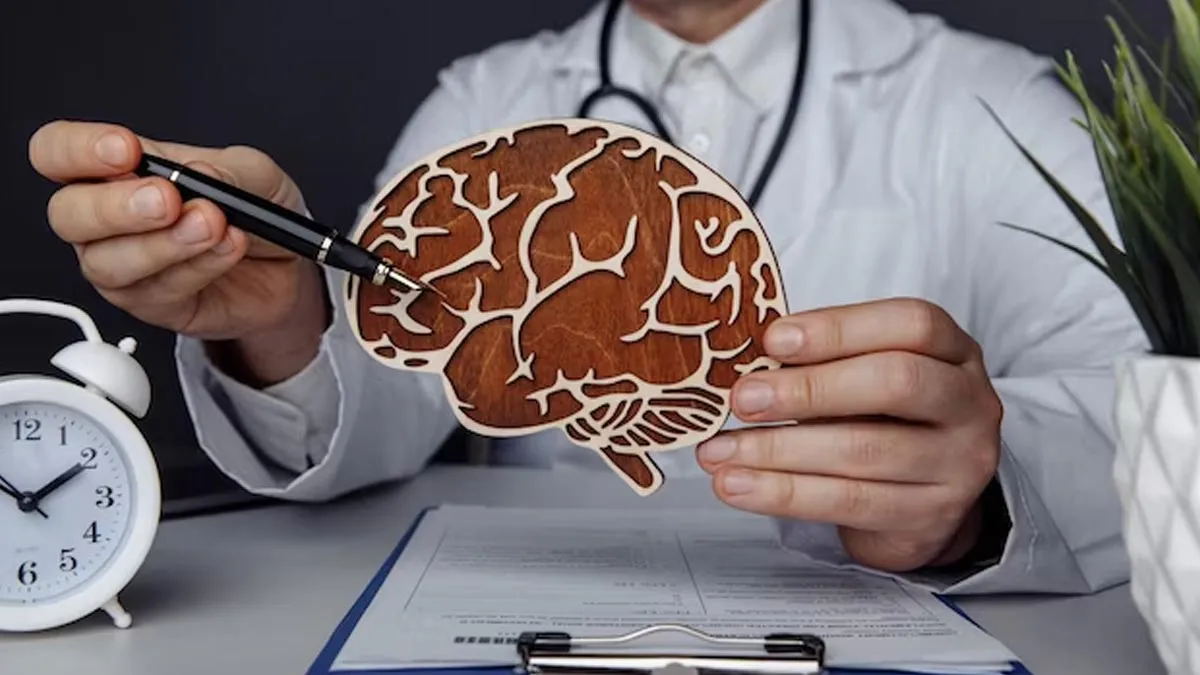
We all strive for a sharp mind, a clear memory, and the ability to focus. But what if some of the very foods we consume daily are silently undermining our cognitive prowess? Dr. Shrey Kumar Srivastav, a Senior Consultant and General Physician at Sharda Hospital, has compiled a crucial list of seven culprits that he believes are "way too bad" for your brain health. It's time to pay attention to what you're putting on your plate, as your dietary choices have a profound impact on the most vital organ in your body.
Table of Content:-
1. Sugary Drinks
From your morning soda to that afternoon energy drink, sugary beverages are a major concern for Dr. Srivastav. "These drinks cause rapid spikes in blood sugar, leading to inflammation and insulin resistance, both of which have been linked to cognitive decline and an increased risk of Alzheimer's disease," he explains. Furthermore, these empty calories often displace nutrient-rich foods, further depriving the brain of essential fuel.
2. Processed Foods
Convenience often comes at a cost, and highly processed foods are a prime example. Packed with unhealthy fats, excessive sodium, artificial additives, and preservatives, these items offer little nutritional value for your brain. Dr. Srivastav warns, "The trans fats found in many processed snacks and fried foods can impair cognitive function and increase the risk of stroke. The artificial ingredients can also disrupt the delicate balance of brain chemistry."

Also Read: Magnesium For Sleep: When And How to Take It For Best Results
3. Refined Carbohydrates
Think white bread, pasta, and pastries. These refined carbohydrates are quickly broken down into glucose, causing the same blood sugar spikes as sugary drinks. "While they provide a temporary energy boost, the subsequent crash can leave you feeling sluggish and mentally foggy," Dr. Srivastav points out. "Over time, a diet high in refined carbs can contribute to insulin resistance and inflammation, negatively impacting brain function."
4. Excessive Alcohol
While a moderate glass of wine might have some debated benefits, excessive alcohol consumption is unequivocally detrimental to brain health. Dr. Srivastav emphasises, "Alcohol is a neurotoxin. Chronic heavy drinking can lead to brain shrinkage, memory problems, and an increased risk of dementia. Even in the short term, it impairs judgment, concentration, and coordination."
5. Fried Foods
Those crispy fries and deep-fried snacks might be tempting, but they are often loaded with unhealthy saturated and trans fats. "These fats can contribute to inflammation and oxidative stress, both of which are harmful to brain cells," cautions Dr. Srivastav. "A diet high in fried foods has been linked to poorer cognitive function and an increased risk of neurodegenerative diseases."

6. Artificial Sweeteners
Often marketed as a healthier alternative to sugar, artificial sweeteners might not be as benign as they seem for brain health. Dr. Srivastav notes, "Some studies suggest that artificial sweeteners can disrupt the gut microbiome, which has a significant impact on brain health. Others have linked them to an increased risk of stroke and dementia, although more research is needed in this area."
7. Highly Processed Meats
Think hot dogs, sausages, and deli meats. These often contain high levels of sodium, nitrates, and saturated fats. "These substances can contribute to inflammation and high blood pressure, both of which are risk factors for cognitive decline and stroke," explains Dr. Srivastav. Opting for leaner, unprocessed protein sources is a much wiser choice for your brain.
Bottomline
Dr. Srivastav's list serves as a powerful reminder that what we eat directly impacts the health and function of our brain. While occasional indulgences are unlikely to cause significant harm, consistently consuming these "brain-bad" foods can have long-term negative consequences.
"Focus on a balanced diet rich in fruits, vegetables, whole grains, lean proteins, and healthy fats like omega-3s," advises Dr. Srivastav. These foods provide the essential nutrients and antioxidants your brain needs to thrive. Making conscious choices about what you eat is an investment in your cognitive well-being today and for years to come."
By being mindful of these seven food categories and prioritising whole, unprocessed options, you can take proactive steps towards protecting your precious brain health and ensuring a sharper, clearer future.
Also watch this video
How we keep this article up to date:
We work with experts and keep a close eye on the latest in health and wellness. Whenever there is a new research or helpful information, we update our articles with accurate and useful advice.
Current Version